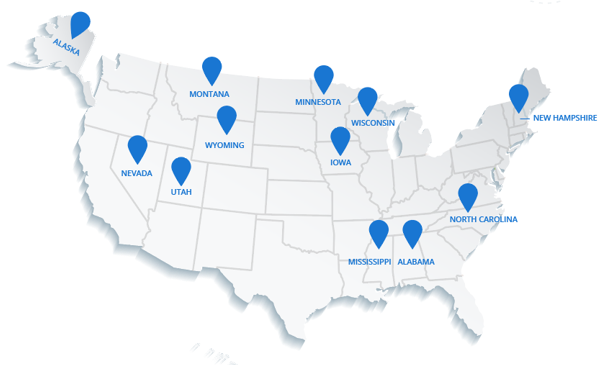Have You Made a Plan Already, or Are You Rethinking Your Goals for the New Year?
It's great to make a resolution for yourself. The end result is that, when you succeed, the people you share it with will rejoice with you! DirectShifts hosted an online on-demand event, "New Year, New Resolutions where our clinician partners came together to participate and discussed their New Year's resolutions and goals with us. DirectShifts wishes that all health professionals have the support and respect they deserve in the new year and beyond. No words are enough to express our gratitude for your tremendous work every day of the year.
Agenda
Active discussions about personal and professional development goals, as well as a new work-life balance.
Addressing how essential developing new skills is in these changing times.
A quiz to help us get to know our clinicians better and learn more about them.
Tips for developing new resumes, career development, and personal growth.
Key Highlights
We interviewed a few of our clinician partners and asked them about their personal and professional goals and plans for the new year. Things they want to change, their aspirations, their hopes, fears, and dreams. The next discussion that we had was with Kelli Hall, a Licensed Clinical Social Worker working with DirectShifts.
Read to know her resolutions and plans for 2023 as a healthcare professional and the ones she is rethinking:
What are some of the goals that you have for 2023 now that we're starting the new year?
What I believe is that every new year is a brand-new chapter, and then you have all of these opportunities for every month too. I'm not just a licensed clinical social worker; I'm also a confidence and empowerment life coach. So, for me, the best way to help people grow, whether it's my own personal growth and journey or that of my clients, is to help them identify each of those different domains which are health, vitality, vocation, life purpose time, money, freedom, love, and relationships. What would you like to create for yourself? And then you can identify some actual fundamental goals, because it's not just about, mindset shifting; it's also about having a practical behavioral and logistical approach to it.
So, speaking of change, what are some of those micro changes that you're planning on making, especially when it comes to self-care? That's something that a lot of clinicians tend to overlook.
It could be that I want to do more than just get more or do better because those are so ambiguous that I can easily become overwhelmed. Then you also don't really know if you've attained either because they're not measurable. Don't set yourself up for failure if you know it's going to be really hard for you to hit the gym seven days a week. But you're pretty sure you can hit three; shoot for two to three, then give yourself that range of opportunity so you feel like you've actually accomplished something, and that gives you the confidence and momentum to keep going. So for me personally, some micro-changes would be in terms of, let's say, looking at these opportunities for development. In a different capacity in my field, I might be able to connect with people who are taking action, taking some of these opportunities that are stretching me out of my comfort zone, writing some of those articles, and really just being willing to put myself in an uncomfortable position.
There are goals that push us out of our comfort zone. And we have to actually work through fear to make them attainable. What are your fears?
What I was talking about was biological fear. It gets triggered by us and by most of my clients. They might come to me for things like anxiety and some mild depressive symptoms. What I discover is that beneath the story, the core negative belief is that I am insufficient. Then they create an overcorrection of perfectionism. They can be seriously self-sabotaging, right? Because if you think you're not going to be able to do something perfectly, you might just avoid it altogether. Well, this is going to keep you from growing. It's going to keep you from going after, you know, some of these intentions that you want to set for yourself and some of these goals that you want to create in your life. So that's a big part of what I like to do with my clients”help them shift out of that perfectionist state. All or nothing, black-and-white kind of thinking. It's really extreme, and they think it has to be one or the other.
So, do you think that some of these feelings of fear and abandonment, as well as the underlying Toronto wounds, contribute to why New Year's resolutions are so difficult to keep? Do you have any thoughts on that?
We don't always do anything. We don't function like that. We're not robots, right? So looking at your language, that's one of the first things I'll have to learn.
Two, to return to the topic at hand, when did you make your New Year's resolutions? I dislike the word "resolution" because it conveys a strong sense of force. It feels kind of punishing, right? You're like, "I'll resolve to do this, and you probably won't want to." So when we circle back to those measurable, smart goals, one of them is relevant. Well, maybe you don't really even want to go for this goal. Maybe you don't want to go to the gym. Maybe you don't care if you work out or not, but then, you know, everybody else is working out.
So that's one thing: do an honest assessment. Do you really want to? Is this a resolution that inspires you and feels really resonant? Is it relevant to your life? So I would prefer instead to say "like intentions." I am setting intentions for the new year. I do that every single year. You've closed out the old year, and then you set some intentions for the new year. You can then use the smart goals method to determine what actual goals you could achieve based on your intentions.
When you're thinking about maybe not New Year's resolutions, but intentions, goals, and things that you're really aiming to look for, how do you know? that even if we're following along, you're meeting your goals. How do you know when that has just become a healthy habit? How can you differentiate the difference between those two?
I would say it's when it doesn't feel like itself. You've become more passive, for example, because habit is really ritual and routine. When something becomes habitual, you do it almost on autopilot. For instance, we have a habit of driving and, without being too loud, advocating for mindfulness practices, so you know, if you're able to stay in the present moment and it feels like it, it's not. I guess it's not necessarily depleting you; it's just something that's become. Part of what your day looks like It doesn't seem to require a whole lot of active engagement from you. It certainly requires choice, of course, but it's not. It's not like a fork in the road where you keep pivoting right toward where you want to go.
There is one word that I have tried very consciously for years to eliminate from my vocabulary, which is "weakness." Rather, I will say areas for improvement, but I will almost never say weakness, not about myself or anything else. We're all just practicing and trying to get better and develop new skills. What is your take on that?
We are once again human. Nobody's perfect. There's going to be some overlap. Every single person has an area where they could use a little bit of tweaking. There's a little bit of work to be done there, which is fantastic. And this is yet another reason why I am such a strong supporter of people working with a therapist and a coach. We all have blind spots. that is, like we were. It's on autopilot. We're, you know, kind of robots in that state, in that sense of the word. So we're not really noticing what we're doing and saying, or, you know, how something isn't functional for us because we've been doing it for such a long time and there is some kind of payoff. So it's really good to look at all of that stuff. Working with the therapist and a coach can help you get clear about what's really standing in the way. It's like, "Let's bridge the gap."
Catch the full interview: New Year, New Resolutions (directshifts.com)
January 23, 2023




Comments